MASHKAI, Balochistan: Liaquat Ali, a 30-year-old laborer, couldn’t help but burst into tears of joy when he got the key last month for his new two-room, mud-brick house.
Ali’s former mud home was destroyed five years ago in two devastating quakes in Baluchistan, a huge earthquake-prone province of rugged mountains and deserts in Pakistan’s southwest.
According to official figures, over 825 people died and 200,000 had their lives disrupted when a 7.7 magnitude quake struck on September 24, 2013, followed by another one four days later. The quakes destroyed homes and knocked off communication systems. Ali’s home district of Awaran was the worst affected.
“After all those miserable days, I am happy I got a home,” Ali told Arab News.
“I couldn’t imagine that I would get all these facilities in my hometown,” Ali said as he walked around his house and pointed to a solar panel on his rooftop. He said the home had uninterrupted electricity and water and he paid no bills.
“Our kids have a playground and a school,” Ali said. “What more could we ask for?”
But Ali’s family is only one of thousands that need shelter in Mashkai, the largest of the three administrative divisions that make up Awaran district, with a population of 34,625 people living in a smattering of 94 tiny villages.
The building of the 75-house model village by the Pakistan army is but a tiny blip is the gargantuan rebuilding task that Baluchistan requires.
About 21,000 homes were destroyed across Baluchistan during the earthquake, 9,000 of them in Mashkai alone, forcing thousands of people to live in tents near their wrecked homes or flee to other parts of the province.
“The construction of the model village by the army is a good step but to help thousands of the affectees requires some large-scale efforts by the civilian government, which has the prime responsibility of providing shelter,” said Ahmed Iqbal Baloch, a social activist who owns the Baloch language Vsh News channel.
Locals said the government had done little to help them since the earthquakes but Zahoor Ahmed Buledi, the provincial minister for information, claims the provincial government has provided relief.
“Thousands of homes have been built by the provincial government,” he claimed, declining further comment. However, Baloch said no houses had been built. “The government had given Rs50,000 per family, an amount which was insufficient for constructing a house,” Baloch said.
Baluchistan, which borders Iran and Afghanistan, is one of the poorest regions of Pakistan and has some of the worst health indicators in the country.
The province is also home to Baloch militants engaged in a decades-long conflict with the central government which they accuse of discrimination in distribution of revenues from oil, gas and minerals.
The 2013 quake was followed by a spate of attacks on army and paramilitary troops. Two soldiers delivering relief supplies were killed by a roadside bomb near Awaran, rockets fired by the militants narrowly missed military helicopters carrying aid and there were several attacks on relief convoys.
“Since violence was at its peak [when the earthquakes took place], neither government nor NGOs [non-governmental organizations] could enter the area,” said Baloch, the social activist. “Even then Chief Minister Dr. Abdul Malik failed to enter area.”
Security in Baluchistan has improved since as thousands of militants have surrendered amid vast investment from Beijing’s Belt and Road infrastructure splurge. A new transport corridor, the China Pakistan Economic Corridor through Baluchistan, will link Western China with Pakistan’s Arabian Sea port of Gwadar and is due to be operational soon.
While militants vow to disrupt work on the corridor a senior security official in Gajjar, the headquarter of Mashkai, said the military had made major security gains. He described a time when a local college was turned into the head office of the Baloch Liberation Front and no cars could travel in the area after dark.
“The civilian administration was almost non-existent,” said the official, who declined to be named as he was not authorized to speak to journalists on the record. “But now private vehicles pass by without fear, even during nights. The people can send their children to school and bazaars are open. The peace has been restored”
He said the army had launched many projects in the area including renovating schools, setting up a telemedicine facility and opening vocational training centers.
“As the people of this poor and neglected area cannot afford to construct houses, we also thought constructing a model village could bring some relief to lives of some of the [earthquake] affectees,” the official said.
Work on the model village, which cost Rs.15 million, began on May 26 last year and was completed on December 14.
“This mega project has been built on a self-help basis by the army in short span of six months,” a statement by the military’s media wing said, adding that in addition to the homes, the village also had a mosque, children’s play area and soccer and cricket grounds.
But Ali said a lot more needed to be done.
“We need more such houses,” he said. “We need roads and employment to come.”
Balochistan residents get ‘model homes’ five years after quake
Balochistan residents get ‘model homes’ five years after quake
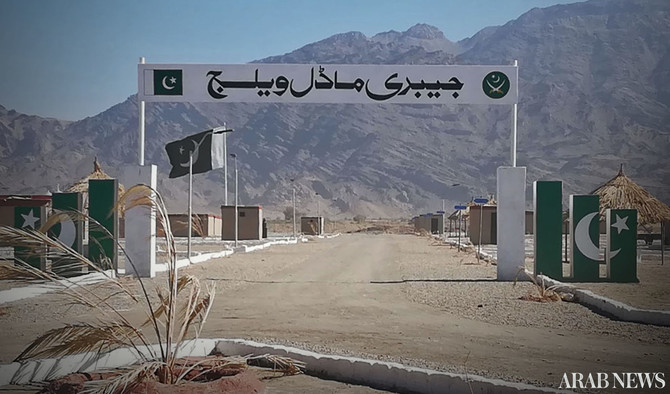
- Army inaugurated Rs.15 million 75-house village in December
- The model village has soccer and cricket grounds, mosque, school and children’s play area
Bangladesh name Pakistan’s Mushtaq as new spin coach
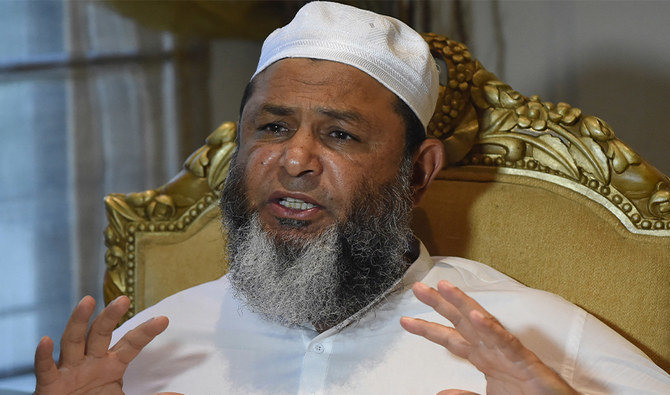
- Mushtaq Ahmed is a former Pakistan leg spinner and 1992 World Cup winner
- Ahmed will work with Bangladesh until the end of T20 World Cup in US, West Indies
DHAKA: Bangladesh named former Pakistan leg-spinner and World Cup winner Mushtaq Ahmed on Tuesday as the spin-bowling coach for the men’s national cricket team.
Mushtaq will join the side before a preparation camp for next month’s five-match Twenty20 international series against Zimbabwe and will work with the Bangladesh team until the end of the T20 World Cup in the West Indies and the United States.
Bangladesh has been in the hunt for a spin-bowling coach since Sri Lankan Rangana Herath left in November. Local coach Sohel Islam filled in during the recent series against Sri Lanka.
Mushtaq was spin coach with England from 2008-14, the West Indies in 2018-19 and Pakistan from 2020-2022.
He was also Pakistan’s bowling consultant between 2014 and 2016.
“It is a great honor for me to be a part of the Bangladesh cricket team as a spin-bowling coach,” 53-year-old Mushtaq said.
“I am looking forward to the role and want to pass my experience to the players because they are very coachable and I always believe that they are one of the most dangerous teams around.
“They can beat anyone because they have the capability, the resources and the talent. I will try to instill that belief into them,” he said.
Bangladesh will host Zimbabwe for five T20s from May 3-12 before traveling to the United States for a three-match series against the hosts and the T20 World Cup.
Pakistan Army vows stern action against ‘malicious’ propaganda targeting military
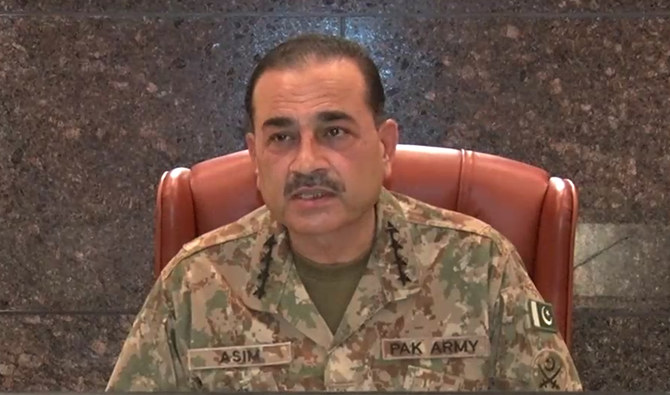
- Statement comes days after videos on social media last week showed soldiers beating Punjab police personnel in Bahawalnagar
- Baseless allegations against law enforcement agencies part of larger design to drive wedge between armed forces and people, says army
ISLAMABAD: The Pakistan Army on Tuesday warned it would ensure stern action is taken against “malicious” propaganda and baseless allegations against the country’s armed forces, days after a series of videos emerged on social media showing soldiers beating up cops after a confrontation.
According to the information available in the public domain, a brawl between army soldiers and Punjab police personnel broke out in the Pakistani city of Bahawalnagar last week. The scuffle reportedly took place after a soldier’s relative was arrested by police without the necessary paperwork.
The army said on Friday that the issue was “promptly addressed and resolved” by the military and police authorities, without sharing details of the incident. Videos of the altercations, however, prompted criticism of the army on social media platforms.
Punjab Inspector General Police Dr. Usman Anwar had blamed social media for blowing the incident out of proportion, saying it had benefited the country’s enemies who were trying to create the impression that Pakistani state institutions were at odds with one another.
“Forum noted with concern the malicious propaganda campaign meant to demoralize the Armed Forces,” the army’s media wing said in a statement released after a meeting of the army’s top brass, headed by its chief General Syed Asim Munir, took place in Rawalpindi.
The army’s media wing added it had also noted that baseless allegations against security forces were part of a larger design to drive a wedge between the people and Pakistan’s armed forces.
“We will not allow such efforts to succeed and as per the law and constitution, stern action will be ensured,” the Inter-Services Public Relations (ISPR) said.
Similar incidents have also been recorded in Pakistan in the past where army officials roughed up police personnel.
In September 2016, the Khyber Pakhtunkhwa police registered a complaint against army officials accused of beating four Motorway Police employees after the latter issued them a traffic ticket for reckless driving.
Pakistan’s powerful military has ruled the country directly for over 30 years since it gained independence in 1947. Even when not in power, the military remains the invisible guiding hand of Pakistani politics, with an outsized role in decision-making related to foreign affairs, national security and the economy.
The army, however, says it no longer interferes in political affairs.
Pakistan’s key stock index, spurred by hopes of Saudi investment, breaches 71,000 barrier

- The benchmark KSE 100 index reached a record high of 71,092 points during intra-day trading on Tuesday
- Saudi Arabia’s foreign minister arrived in Pakistan on Monday with his visit aimed at enhancing economic cooperation
KARACHI: Bulls at the Pakistan Stock Exchange (PSX) welcomed a high-profile Saudi delegation’s visit to Pakistan on Tuesday, as the key stock index registered an all-time high of over 71,000 points during intraday trading as investors hoped Islamabad would attract investment from the Kingdom, analysts said.
The benchmark KSE 100 index reached a record high of 71,092 points during the day on Tuesday before closing 60.9 points down at 70,483.6 level, the stock market’s website showed. The bullish trend followed a day after Saudi Arabia’s Foreign Minister Prince Faisal bin Farhan arrived in Pakistan on a two-day visit to the country.
The Saudi minister’s visit is aimed at enhancing bilateral economic cooperation and pushing forward previously agreed investment deals with Pakistan. His trip comes a little over a week after Crown Prince Mohammed bin Salman met Prime Minister Shehbaz Sharif in Makkah and reaffirmed the Kingdom’s commitment to expedite investments worth $5 billion.
“The current bullish trend in the stock market is fueled by hopes of realizing Saudi investments and deposits following the visit of a high-profile delegation [to Pakistan],” Muhammad Sohail, CEO of Topline Securities, told Arab News.
Pakistan’s prime minister, president and foreign minister on Tuesday said the Saudi foreign minister’s ongoing visit would help transform a longstanding friendship between the two nations into a strategic and commercial partnership.
Pakistan has identified agriculture, mining, energy and IT sectors for foreign investment through the Special Investment Facilitation Council (SIFC), a hybrid civil-military body that was formed in June last year to attract investments from mainly Gulf countries.
Ali Nawaz, CEO of Chase Securities, said other than the Saudi delegation’s arrival, other reasons had also influenced Pakistani stocks to perform well.
“Firstly, positive corporate performance by listed companies, characterized by revenue growth and profitability, has bolstered investor confidence in the market,” Nawaz told Arab News.
He said Pakistan’s stable political conditions have contributed to a positive sentiment among investors and encouraged them to invest in equities.
“Foreign investors continue to accumulate position in equity markets bringing in much-needed liquidity into capital markets,” Nawaz said.
Ahsan Mehanti, CEO of Arif Habib Corporation, said the stock market had gained impressively during the day but closed at a lower level due to institutional profit taking. Profit taking refers to the act of selling a security to lock in gains after it has risen appreciably.
Mehanti said the development had taken place amid “uncertainty over the outcome of Pakistan-IMF talks for new bailout program and geo-political tensions.”
Pakistan’s finance minister Muhammad Aurangzeb, who is in Washington, has initiated talks with IMF officials to secure a new loan program after the South Asian country’s $3 billion loan program draws to a close this month.
Speaking at an event hosted by the Atlantic Council, a think tank, the finance minister said Pakistan is looking for a larger loan program that would span two to three years in duration.
“We will need a two-to-three period year time period so that we can actually go through the structural reforms,” the finance minister said.
Lightning, heavy rains kill 57 across Pakistan in five days
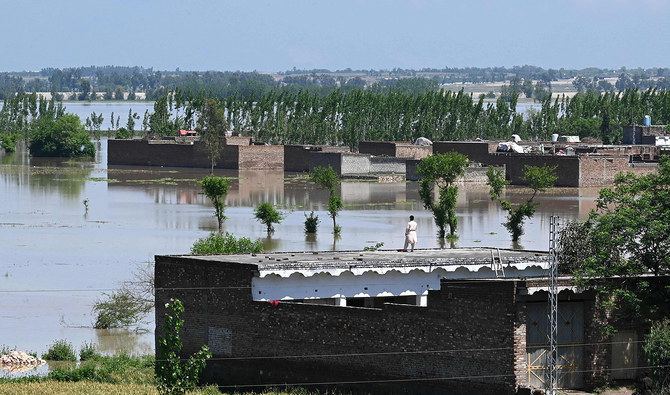
- Pakistan’s northwestern Khyber Pakhtunkhwa province reports highest casualties in five days, 21
- Punjab’s disaster management authority predicts heavy rains in province from April 18-21
PESHAWAR: Heavy rains and lightning strikes have killed at least 57 and wounded dozens of others across Pakistan during the last five days, the country’s national and provincial disaster management authorities said on Tuesday.
The downpours, which began on Friday, have damaged several homes across the South Asian country while more showers are expected across Pakistan this week, the National Disaster Management Authority (NDMA) said in a statement this week.
Pakistan’s northwestern Khyber Pakhtunkhwa (KP) province has reported the highest death toll in the country from rains during the last five days, 21, the Provincial Disaster Management Authority (PDMA) KP said. In Sindh, Punjab, Balochistan, Azad Kashmir and Gilgit-Baltistan areas, 36 people died in the last five days in rain-related incidents, the NDMA added.
“In Khyber Pakhtunkhwa province 21 people have been killed and 34 injured in the last five days due to accidents caused by heavy rain,” the PDMA said in a report.
Due to continuous downpours in different parts of the northwestern province, 344 houses have been damaged due to the rain, the report said.
The PDMA said KP’s districts of Lower and Upper Dir, Khyber, Chitral Lower, Swat, Shangla, Mansehra, Malakand, Tank, Mardan and Karak were the province’s worst-affected by the rains.
It said KP Chief Minister Ali Amin Gandapur had directed all the district administrations and departments concerned to provide medical assistance and relief to families affected by the rains.
Ex-PM Khan’s wife alleges violation of privacy, dignity under house arrest in Islamabad
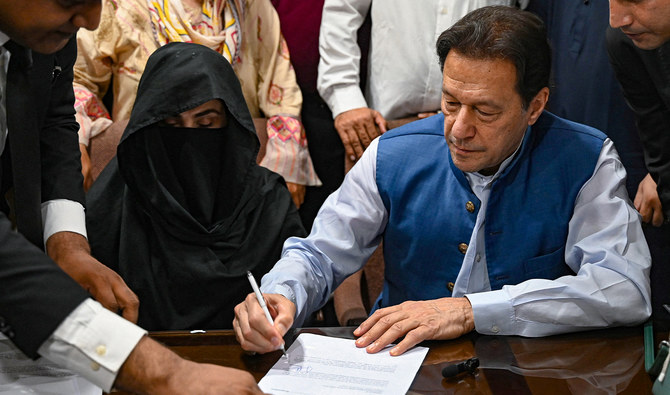
- Bushra Bibi petitions court that room she has been confined to is bugged, hidden cameras installed in room and bathroom
- Tells court she is being subjected to “mental and physical torture which is becoming a serious threat to her health and life”
ISLAMABAD: Former prime minister Imran Khan’s wife Bushra Bibi has filed a petition in the Islamabad High Court this week alleging that authorities were violating her fundamental rights during her incarceration at the Islamabad home of her husband where she has been jailed since being convicted in January for graft.
Bushra has been living under house arrest at her husband’s sprawling Bani Gala mansion, declared a sub-jail, in Islamabad since Jan. 31 when both were sentenced to 14 years in prison in a case that relates to accusations they undervalued gifts from a state repository and gained profits from selling them while Khan was prime minister from 2018-22. Khan is jailed at Rawalpindi’s Adiala Jail.
In February, Khan and his wife were also sentenced to seven years on charges they violated the country’s marriage law when they wed in 2018 — the fourth sentence so far for Khan and the second for his wife.
In her petition to the court filed on Monday, Bushar, a deeply religious woman widely believed to be Khan’s spiritual guide, alleged she was being poisoned through contaminated food and subjected to “mental and physical torture which is becoming a serious threat to her health and life.”
“She experienced severe gut pain and a burning sensation in her throat and mouth. She suspects that she has been given some sort of acid in her meal,” the petition read.
“That the sub-jail is predominantly male heavy, with only one female associate at her disposal … It is clearly a form of mental harassment. She has voiced this concern, but it hasn’t been given much attention.”
She also alleged that her room and bathroom had been bugged and multiple hidden cameras installed.
“It is a blatant violation of her privacy, dignity and honor,” the plea said.
The petition said Bushra was only given ten minutes for meetings with family members and lawyers, with five jail staff supervising at all times.
The petitioner requested the court to allow Bushra’s medical check-up and treatment from Shaukat Khanam Memorial Hospital, or any other private medical specialist or lab of her own choice. She also urged the court to order authorities to ensure the protection of her fundamental rights.
Khan was first jailed after being handed a three-year prison sentence in August 2023 by the Election Commission for not declaring assets earned from selling gifts worth more than 140 million rupees ($501,000) in state possession and received during his premiership. In January, Khan and Bushra were handed 14-year jail terms following a separate investigation by the country’s top anti-graft body into the same charges involving state gifts.
An anti-graft court in Islamabad also handed Khan a 10-year jail term in January for revealing state secrets, a week before national elections on Feb. 8. The ruling on his marriage to Bushra and a seven-year sentence each for both also came ahead of the polls.
Khan has also been indicted under Pakistan’s anti-terrorism law in connection with violence against the military that erupted following his brief arrest related to the Al-Qadir case on May 9. A section of Pakistan’s 1997 anti-terrorism act prescribes the death penalty as maximum punishment. Khan has denied the charges under the anti-terrorism law, saying he was in detention when the violence took place.
Khan’s convictions mean he is banned from holding public office and ruled the 71-year-old out of general elections earlier this year. Arguably Pakistan’s most popular politician, Khan says all cases against him are motivated to keep him out of politics.























